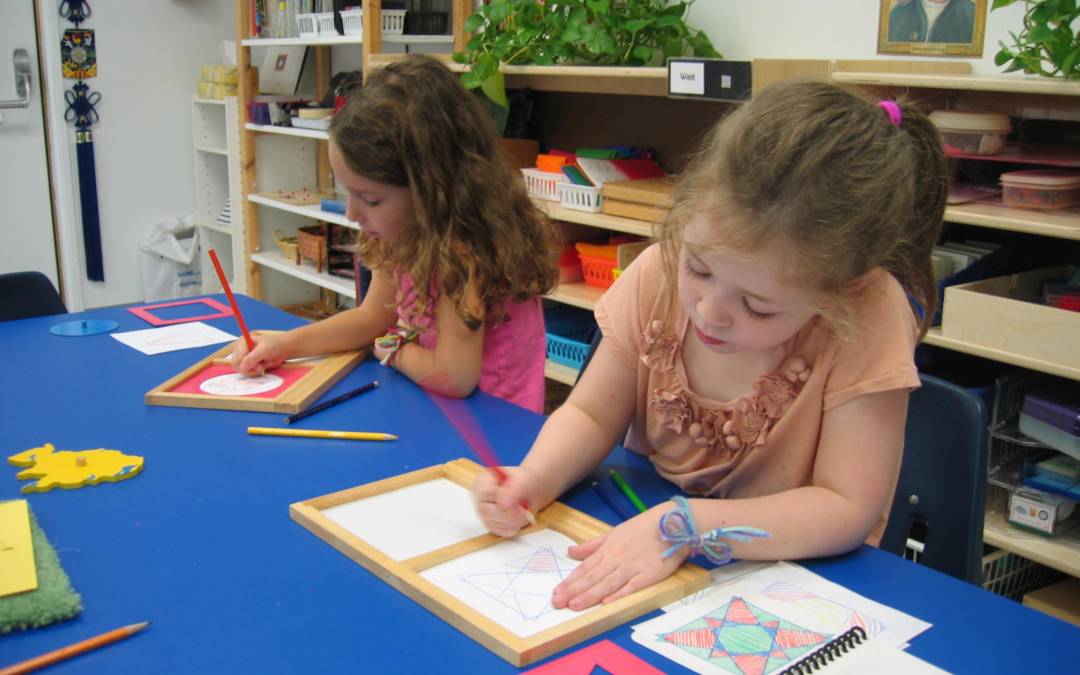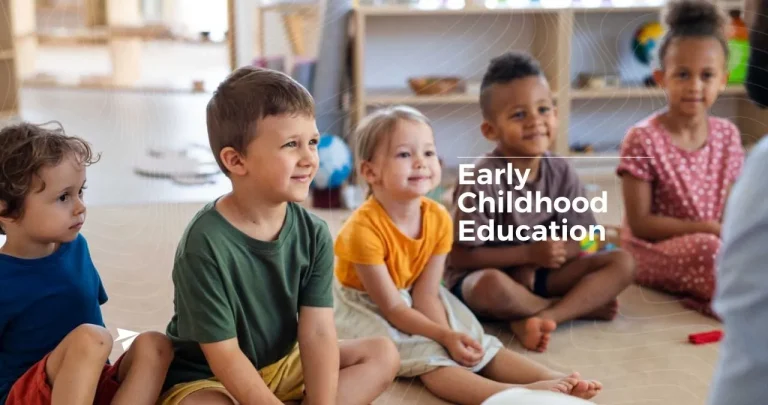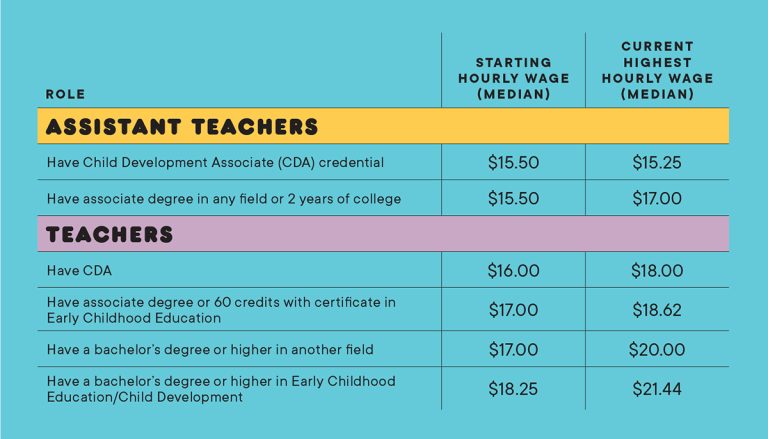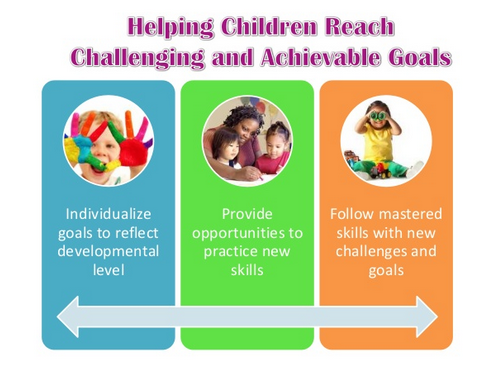Difference between Daycare And Preschool: Understand the Key Distinctions

Daycare and preschools differ based on the age of the children and the type of activities offered. Daycare is typically for younger children, providing a safe and nurturing environment, while preschool focuses on early education and preparing children for kindergarten through structured learning experiences, such as literacy and math skills development.
Essence Of Daycare Explained
The essence of daycare can be explained as a vital form of childcare that provides a nurturing environment for children of various ages. Unlike preschool, daycare primarily focuses on the well-being and care of the child rather than solely emphasizing education. Let’s explore the different aspects that make daycare an excellent choice for parents seeking reliable childcare solutions.
Childcare For Various Ages
Daycare centers accommodate children of different ages, ranging from infants to toddlers and preschoolers. This ensures that parents can find suitable care for their children regardless of their age group. Recognizing the unique needs and developmental stages of each child, daycares strive to provide age-appropriate activities and engaging experiences to facilitate their growth and development.
Flexible Hours For Parents
One of the significant advantages of daycare is its flexibility in terms of operating hours. Many daycares operate beyond traditional school hours, offering full-time or part-time care to suit the diverse needs of working parents. With extended hours and sometimes even weekend options, daycare centers provide parents with the convenience and peace of mind they require to balance their personal and professional responsibilities.
Emphasis On Care Over Education
Unlike preschool, where education is a primary focus, daycare centers prioritize the overall care and well-being of the child. While educational activities and learning opportunities are often incorporated into the daycare curriculum, the primary emphasis remains on providing a safe, nurturing, and supportive environment for children to thrive. This approach allows children to develop social skills, emotional intelligence, and positive self-expression, laying a solid foundation for their future education.
Preschool Fundamentals
In the journey of a child’s early education, preschool plays a vital role in shaping their foundation for future learning. Preschool is not just a childcare place but offers a structured educational environment that focuses on preparing children for kindergarten. Let’s explore the preschool fundamentals that make it different from daycare.
Structured Educational Environment
Unlike daycare, preschool provides a structured educational environment that is designed to foster the overall development of a child. Preschools are equipped with age-appropriate activities and educational materials that help children learn and grow. The emphasis is on providing a balanced approach to learning, including cognitive, emotional, social, and physical development.
Preschool classrooms are organized in a way that promotes exploration, creativity, and critical thinking. Teachers in preschools are trained to encourage children’s natural curiosity and guide them through various age-appropriate activities. Through this structured environment, children develop essential skills such as problem-solving, communication, and collaboration, which are crucial for future academic success.
Preparation For Kindergarten
One of the significant advantages of preschool over daycare is the focused preparation it offers for kindergarten. The preschool curriculum is carefully designed to ensure that children acquire the necessary academic and social skills needed for a smooth transition to kindergarten. Preschools typically introduce early literacy, numeracy, and language development activities that lay a strong foundation for future academic achievement.
The structured curriculum in preschools helps children develop key skills like letter recognition, number sense, fine motor skills, and pre-writing skills. Through interactive and hands-on learning experiences, children learn to follow instructions, develop good work habits, and become comfortable in a classroom setting. These essential skills prepare them for the academic expectations of kindergarten and build their confidence as learners.
Set Schedule And Curriculum
In preschool, a set schedule and curriculum are followed, which distinguishes it from daycare where the focus is primarily on supervising and providing care. Preschools have a well-planned daily routine that includes a balance of structured learning activities, playtime, rest periods, and nutritious meals. This schedule fosters a sense of routine and predictability, which is essential for young children’s emotional and cognitive development.
The curriculum in preschools is designed to encompass a wide range of subjects and concepts, including language and literacy, math, science, music, art, and physical education. Along with structured activities, preschools also allow for free play, which promotes creativity, social interaction, and problem-solving skills. Through a combination of structured curriculum and free play opportunities, preschools provide a holistic learning experience for children.
In conclusion, preschools go beyond providing childcare and offer a structured educational environment that prepares children for kindergarten. From the structured educational environment to the focused preparation for kindergarten and the set schedule and curriculum, preschools play a crucial role in laying the foundation for a child’s lifelong learning journey.
Difference In Age Groups
When choosing between daycare and preschool for your child, it is essential to understand the difference in age groups catered to by each educational setting. While both daycare and preschool offer early childhood education, they target different age ranges to accommodate the developmental needs and learning objectives of children at various stages of their growth.
Typical Age Range For Daycare
Daycare primarily focuses on the care and supervision of children while their parents are at work. It serves as a safe and nurturing environment for infants, toddlers, and young children up to the age of five. Daycare centers are designed to offer a supportive setting where children can engage in various activities, such as playing, socializing, and receiving basic education.
The typical age range for daycare includes infants as young as six weeks old up until the age of five. Here, children receive personalized attention from qualified caregivers who help meet their physical, emotional, and social needs. Daycare centers often provide age-appropriate toys, games, and activities to promote overall development and prepare children for their transition to school.
Typical Age Range For Preschool
Preschool, on the other hand, specifically caters to slightly older children who are approaching school age. It focuses on preparing children for formal education by fostering their cognitive, social, and emotional skills through an age-appropriate curriculum. Preschool is typically available for children aged three to five, although some preschool programs may start as early as two years old.
During the preschool years, children are exposed to a structured learning environment that encourages independence, creativity, and critical thinking. Teachers engage them in activities such as pre-reading and pre-writing exercises, basic math concepts, arts and crafts, and social interactions. This prepares them for the challenges of kindergarten and lays a solid foundation for their academic journey.
Conclusion
Understanding the age range distinction between daycare and preschool is crucial in determining which setting would best meet your child’s developmental needs. Daycare caters to infants, toddlers, and young children, offering a nurturing environment while parents work, whereas preschool focuses on preparing slightly older children for formal education through structured learning activities. By considering the age-appropriate nature of these learning environments, parents can make well-informed decisions about their child’s early education.
Curriculum And Learning Focus
When it comes to choosing between daycare and preschool for your child, one of the key factors to consider is the curriculum and learning focus provided by each. While both settings offer opportunities for growth and development, they differ in their approaches to education. Understanding these differences can help you make an informed decision that aligns with your child’s needs and goals.
Learning Through Play At Daycare
Daycares typically prioritize learning through play as a primary method of education. Young children are given the freedom to explore, discover, and engage in hands-on activities that promote their cognitive, physical, and social development.
In a daycare setting, play-based learning is emphasized, encouraging children to use their imagination and creativity. Through activities such as building blocks, pretend play, and outdoor play, children develop essential skills such as problem-solving, cooperation, and communication.
Daycare centers create a nurturing environment that fosters exploration and self-discovery. The focus is on providing a safe and stimulating space where children can learn at their own pace while building strong foundations for further educational endeavors.
Academic Readiness In Preschool
Preschool, on the other hand, tends to have a stronger emphasis on academic readiness. Teachers in preschools follow a structured curriculum that aims to prepare children for formal schooling. While play still remains an integral part of the learning process, preschools introduce more structured activities and lessons.
Preschool curriculums often include early literacy and numeracy skills, providing children with a solid foundation in reading, writing, and mathematics. These structured activities help children develop the skills, knowledge, and confidence they need to excel academically.
Additionally, preschools may introduce more complex concepts such as science, social studies, and art appreciation. These subjects are introduced in age-appropriate ways, allowing children to explore and discover new interests.
Teacher Qualifications And Training
Another important factor to consider when comparing daycare and preschool is the qualifications and training of the teachers. In both settings, the role of teachers is crucial in providing quality education and ensuring a safe and nurturing environment for children.
Daycare centers typically employ caregivers who have experience working with young children, although they may not always have formal training in early childhood education. On the other hand, preschool teachers are typically required to have a degree or certification in early childhood education or a related field.
The qualifications and training of the teachers in preschools often allow for a deeper understanding of child development and effective teaching strategies. This enables them to create enriching learning experiences tailored to the needs of each child, while also fostering their social and emotional well-being.
Overall, the curriculum and learning focus in daycare and preschool differ in terms of play-based learning versus academic readiness. Choosing between the two will depend on your child’s individual needs and your educational goals. Consider the learning environment, teaching methods, and teacher qualifications to ensure the best fit for your child’s educational journey.
Operational Hours And Flexibility
When it comes to choosing between daycare and preschool for your child, several factors need to be considered. One significant aspect to compare is the operational hours and flexibility offered by each option. This article will delve into the distinct differences in hours and the accommodation of parents’ schedules in daycare centers and preschools.
Daycare Hours Vs. Preschool Hours
Daycare centers typically operate for longer hours compared to preschools. Most daycare facilities open early in the morning, around 6:30 am, and remain open until late in the evening, usually around 6:30 pm. This extended timeframe is designed to provide parents with the flexibility to drop off and pick up their children according to their work schedules.
In contrast, preschools usually follow a more traditional school schedule. They typically operate for fewer hours during weekdays, generally from 8:00 am to 3:00 pm. The shorter operational hours align with the standard school day, allowing children to participate in various educational activities while still having time for rest and relaxation.
Accommodation Of Parents’ Schedules
Daycare centers prioritize accommodating parents with demanding work schedules. Their extended hours make it easier for parents who work long shifts, have irregular schedules, or require childcare outside of the typical nine-to-five workday. This flexibility can be particularly helpful for parents in professions such as healthcare, hospitality, or emergency services.
Preschools, on the other hand, may offer limited flexibility due to their fixed operational hours. However, some preschools provide before and after-school care options for parents who require additional hours of care. These programs often involve additional fees but can provide crucial assistance to families who need extended care for their children.
Parents need to consider their specific scheduling needs when deciding between daycare and preschool. If you require more flexibility and extended hours of care, a daycare center may be the better fit. Conversely, if your schedule aligns with the typical school day, a preschool’s structured hours may be more suitable for your family.
In conclusion, the operational hours and flexibility in daycare centers and preschools differ significantly. Daycare centers offer longer hours to accommodate parents with demanding schedules, while preschools usually have shorter hours that align with traditional school schedules. Understanding your family’s specific needs and scheduling requirements will help you make an informed decision about the most suitable childcare option for your child.

Credit: www.umc.edu
Social Skills And Independence
Social skills and independence are crucial aspects of a child’s overall development. Daycare and preschool both play a significant role in fostering these qualities in children. Let’s explore how each of these educational settings helps in shaping a child’s interaction with peers and adults as well as their development of self-sufficiency.
Interaction With Peers And Adults
Both daycare and preschool provide opportunities for children to interact with their peers and adults, but the nature of these interactions may differ.
In daycare, children often have the chance to interact with various age groups, ranging from infants to preschoolers. While this mixed-age setting allows younger children to learn from older ones and vice versa, it may not provide the same level of structured social interaction that preschool offers.
In preschool, children engage in structured activities that encourage socialization with peers of similar age. These activities might involve group play, collaborative projects, and communication exercises.
Additionally, preschool teachers play a vital role in facilitating positive interactions between children. They guide children in resolving conflicts, sharing resources, and taking turns, helping them develop essential social skills.
Development Of Self-sufficiency
Both daycare and preschool contribute to the development of self-sufficiency in children, albeit in slightly different ways.
Daycare settings often prioritize meeting children’s basic needs, such as feeding, napping, and changing diapers. While children gradually learn to perform certain simple tasks independently, such as putting away toys or washing hands, the emphasis lies more on providing these basic needs rather than fostering complete self-sufficiency.
In contrast, preschool places a greater emphasis on encouraging independence and self-help skills. Children are taught to dress themselves, follow routines, and take care of their belongings. These activities not only teach children how to be self-sufficient but also promote a sense of responsibility and self-confidence.
Preschool teachers provide guidance, support, and encouragement to help children develop these essential life skills. By allowing children to realize their abilities and giving them opportunities to make choices, preschool helps foster their independence.
To summarise, both daycare and preschool contribute to a child’s social skills and independence, although the methods employed may differ slightly. Daycare offers a mixed-age setting where children can learn from each other, while preschool focuses on structured activities that encourage socialization among peers of similar age. Daycare focuses more on meeting basic needs, while preschool promotes independence and self-help skills. Both settings play a vital role in shaping a child’s overall development in terms of social skills and independence.
Pre-academic Skills And Structure
When choosing between daycare and preschool for your child, it is important to consider the pre-academic skills and structure provided by each. These factors play a significant role in shaping your child’s early educational experience.
Introduction To Academic Concepts
In a preschool setting, children are exposed to an introduction to academic concepts at an early age. Preschools typically have a curriculum that focuses on age-appropriate learning activities, which help children develop essential skills for future academic success.
Preschools often utilize a play-based approach to introduce concepts such as colors, shapes, numbers, letters, and basic math and literacy skills. Through engaging activities, hands-on learning experiences, and interactive games, children gain a solid foundation in these fundamental academic areas.
This early exposure to academic concepts in preschool allows children to develop cognitive skills, language skills, and critical thinking abilities. It helps instill a love for learning and prepares them for a smooth transition into formal education.
Importance Of Routine And Structure
Routine and structure are essential elements in both daycare and preschool environments. However, preschools tend to emphasize these aspects more when compared to daycare facilities.
Daycares: While daycares do provide some level of routine and structure, their primary focus is generally on providing childcare and ensuring the child’s safety and well-being. Daycares often have flexible schedules, allowing children to engage in unstructured play and free-choice activities.
Preschools: In contrast, preschools emphasize a structured routine that helps children develop a sense of predictability and stability. They follow set schedules that include designated times for classroom activities, playtime, snack breaks, and naps. This structure helps children learn to follow a schedule, manage their time effectively, and adjust to a more structured learning environment.
The importance of routine and structure in preschool extends beyond establishing a daily schedule. It provides children with a sense of security and helps them develop self-discipline, focusing skills, and the ability to follow instructions. These qualities are crucial for success in both academic and social settings.
To summarize, preschools go beyond daycare facilities by introducing academic concepts early on and providing a structured routine that fosters self-discipline and prepares children for future educational milestones.
Uncovering The Key Distinctions
Discover the key differences between daycare and preschool, helping you make an informed choice for your child’s early education. Understand the varying structures, curriculum, and age groups to ensure the right fit for your little one’s developmental needs.
Factors To Consider For Your Child
When it comes to choosing between daycare and preschool for your child, there are several factors to consider. These factors will help you decide which option is best suited to your child’s needs and your family’s circumstances. Budget, location, and personal values all play a crucial role in this decision-making process. Additionally, considering your long-term educational goals can help ensure that your child receives the right foundation for their future success.
Budget, Location, And Personal Values
One of the primary factors to consider when deciding between daycare and preschool is your budget. Daycare tends to be more cost-effective compared to preschool, as it typically offers more flexible hours and a broader range of services. On the other hand, preschool often focuses more on structured education and may have higher fees associated with it. It is essential to assess your financial situation and determine how much you are willing and able to invest in your child’s care and education.
Location is another crucial consideration. Look for daycare centers or preschools that are conveniently located near your home or workplace. This will make drop-offs and pickups more manageable and convenient for you and your child. Consider the commute time and transportation options available to ensure that the location aligns with your family’s needs.
Furthermore, your personal values should be taken into account when choosing between daycare and preschool. Each option has its own approach to early childhood education and care. Daycare centers may focus more on providing a nurturing environment and meeting the basic needs of your child, while preschools often prioritize early learning and school readiness. Reflect on your values and what you believe is essential for your child’s development, as this will guide your decision-making process.
Long-term Educational Goals
When making the decision between daycare and preschool, it is crucial to consider your long-term educational goals for your child. Preschools typically offer a curriculum designed to prepare children for the formal education system, emphasizing classroom structure, social skills, and early academic concepts. If your primary goal is to give your child a head start academically and help them develop the necessary skills for future educational success, then preschool may be the ideal choice.
However, if your priority is to provide your child with a safe and nurturing environment while you are at work or unable to care for them full-time, daycare might be a better fit. Daycare centers often focus on providing a safe and stimulating environment for your child to engage in age-appropriate activities and socialize with other children. Although formal education may not be the main focus, children still have opportunities to learn through play and exploration.
In conclusion, when deciding between daycare and preschool, it is essential to consider factors such as budget, location, personal values, and long-term educational goals. Each option offers its own advantages and considerations, so it is crucial to assess your child’s needs and your family’s circumstances to make an informed decision. Whether you choose daycare or preschool, your child’s well-being and development should be at the forefront of this decision-making process.
Frequently Asked Questions Of Difference Between Daycare And Preschool
What Is The Difference Between Daycare And Preschool?
Daycare provides childcare services for infants and young children, focusing on basic needs and supervision. Preschool, on the other hand, offers early education and preparation for formal schooling, with structured activities and curriculum.
What Age Group Does Daycare Cater To?
Daycare typically caters to children of any age, from infants to school-age children. They provide a safe and nurturing environment for children while their parents are at work.
What Can My Child Learn In Preschool?
Preschool focuses on early education, providing opportunities for children to develop social, emotional, cognitive, and physical skills. They learn through play, structured activities, and interactions with peers and educators.
Is Preschool More Expensive Than Daycare?
The cost of preschool can vary depending on location, quality, and hours of operation. In general, preschool tends to be more expensive than daycare due to the curriculum and educational resources provided.
Conclusion
When making the decision between daycare and preschool, it is crucial to consider the differing approaches and benefits they offer. Daycare provides a safe and nurturing environment for children, allowing them to socialize and develop essential skills. On the other hand, preschool offers a structured educational curriculum, focusing on academic readiness.
Ultimately, parents should evaluate their child’s needs and goals to determine which option aligns best with their family’s values and priorities. Both daycare and preschool play vital roles in a child’s early development, providing essential foundations for future success.

With over 20 years of experience in early childhood education, Jane brings a wealth of knowledge to Classroom Journey. She specializes in play-based learning and has a passion for inclusive education.







2 Comments